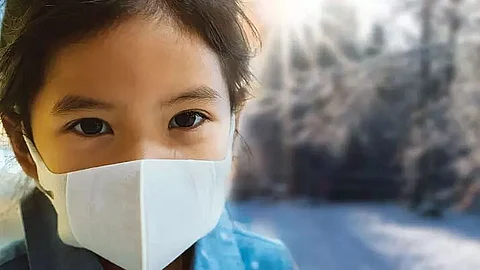
- Home
- Live Blog
- Breaking News
- Top Headlines
- Cities
- NE News
- Sentinel Media
- Sports
- Education
- Jobs

* 'Prevalence of antibodies and transmission trend among children need monitoring'
STAFF REPORTER
GUWAHATI: The State Health Department is worried over the detection of COVID-19 infection in 122 children during the ACSP (Assam Community Surveillance Programme) from June 1 to 9, 2021.
Since June 1, 2021, the door-to-door ACSP surveillance covered over 3,600 of the 26,000 villages in the State. During the nine days, the ACSP covered over 12 lakh people and screened 54,000 of them, leading to the detection of COVID-19 infection in around 900 people, including 122 children (aged below 18 years).
What makes the Department worried is that since 122 children have been detected with COVID-19 infection from 3,600 villages, the number of such COVID-19 infected children in the State may be quite high if all the 26,000 villages in the State are covered by the ACSP drive.
While a section of experts say that the COVID-19 cannot harm children much because of their high immunity, several doctors say that children will be the worst affected ones in the event of any third wave of the COVID-19.
Health Department sources said that the prevalence of antibodies and the transmission trend in children have to be monitored closely. Since children have not been covered by the vaccination drive, it behoves the department to monitor their antibody prevalence and transmission trend.
Apprehending the likely COVID-19 situation among children, the State Government has already started the setting up of 1,000 pediatric centres in the State. The State child health consultant of the NHM (National Health Mission) has already prepared an action plan to face any eventuality in the event of large-scale COVID-19 infection among the children.
The ACSP drive is also going to cover tea estates and forest villages. The virtues of the ACSP drive are that along with the COVID-19, it also covers other diseases like malaria, JE (Japanese Encephalitis) etc.
So far 900 people have been detected with malaria and JE infection during the ACSP drive. Such early detection helps the department to contain such diseases that may go unattended during the all-out war against the COVID-19.